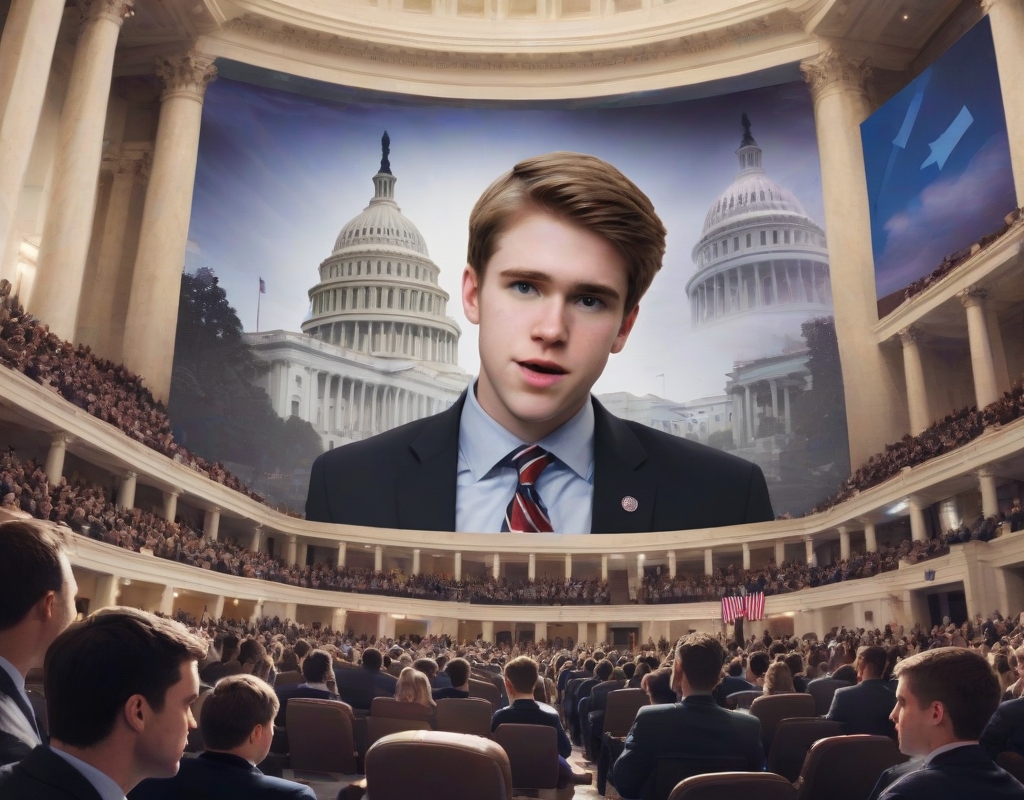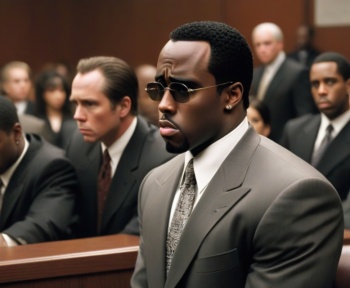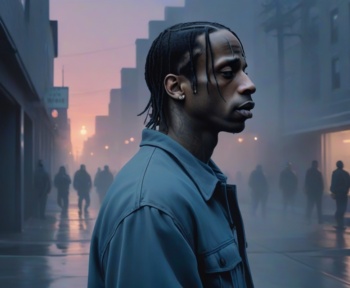In the dynamic realm of social media, the lines between digital content creation and political engagement are increasingly blurring. Bryce Hall, a social media influencer known for his substantial online following, is venturing into a novel territory by planning to collaborate with President-elect Donald Trump. This partnership not only highlights the evolving strategies in politics and media but also underscores the power wielded by digital platforms in shaping political narratives.
### Exploring Bryce Hall’s Motivation and Strategy
Bryce Hall, who rose to fame through engaging TikTok videos and a broad social media presence, was vocal in his support for Donald Trump during the election campaign. He sees a significant opportunity to further amplify Trump’s online reach. This vision gained a more solid base particularly through Hall’s connection with Blake Wynn, who navigates his uncle Steve Wynn’s ties to Trump to facilitate this budding alliance.
### The Seeds of Collaboration
Hall’s interaction with Trump originated at a campaign rally in Las Vegas, where the idea of a joint content venture was floated, albeit playfully. Trump’s remark about boosting Hall’s follower count by 20 million, though made in jest, hinted at the potential of leveraging Hall’s vast young audience.
### Envisioning the Joint Efforts
With Trump preparing for his tenure in the White House, Hall’s strategy includes creating content that could range from TikTok videos to vlogs, aiming to engage youthful demographics often elusive to traditional political outreach. With nearly 24 million TikTok followers, Hall’s involvement could serve as a fertile ground for Trump to plant his political narratives, engaging with a segment of the populace that is notoriously difficult for politicians to reach traditionally.
### Donald Trump and His Online Engagement Prowess
Historically, Trump has effectively utilized digital media, aligning with prominent online personalities like streamers and podcasters to expand his political outreach. Integrating Hall into this framework could help reach younger demographics using relatable content frames native to platforms like TikTok.
### The Power of Influence: Bryce Hall in the Political Arena
Supporting Trump was a high-stakes decision for Hall, potentially impacting his brand. Nonetheless, his dedication indicates a commitment to leveraging digital influence for broader, perceived societal benefits. This ongoing support was underscored by the immediate election results relayed to him, signifying a direct line to high-level political information through his connections.
### Consider the Wider Impact: Social Media’s Expanding Role in Politics
Emerging trends point to social media as a formidable force in political engagement, with platforms such as TikTok, YouTube, and Twitter significantly influencing public opinion and political participation. In the U.S, a notable segment of the populace relies on social media for their political news and discourse, shifting away from traditional news mediums.
Influencers like Hall play a crucial role here. They bring a layer of authenticity and relatable communication that traditional political figures may lack. This connection can demystify complex political processes and mobilize electoral participation among younger demographics.
### Insights from Experts on Digital Politics
Experts highlight the strategic importance of integrating social media influencers into political communication. Dr. Juliet Amato comments on the necessity of this adaptation, spotlighting the importance of speaking the language of younger voters through familiar voices online. Likewise, digital marketing strategist Mark Thompson underscores the critical role of authenticity in political messaging delivered through these non-traditional channels.
### Forward Look: Opportunities and Ethical Considerations
As Hall and Trump move forward with their collaboration, they will navigate potential benefits against the backdrop of ethical concerns and authenticity challenges. The relationship presents a fertile ground for extending political messaging but also requires careful maneuvering to avoid the pitfalls of influencer-politics dynamics, such as potential backlash or the dilution of serious political discourse.
In the broader context, this collaboration could pioneer new methodologies for political campaigns, illustrating the efficacy of strategic alliances between politicians and digital influencers. As both parties attempt to balance their respective brands with their political and professional goals, their actions could significantly influence future political communications and digital strategy integrations.
### Conclusion
Bryce Hall’s endeavor to create viral content with Donald Trump underscores a pivotal shift in political engagement strategies, emphasizing the importance of leveraging social media fame towards substantive political discourse. By combining Hall’s digital influence with Trump’s established political tactics, this collaboration may redefine how political figures interact with the public, paving the way for a new kind of political engagement that resonates with the connected, digital-first electorate. As they harness this potential, their efforts may serve as a template for future interactions between digital influencers and political figures.




